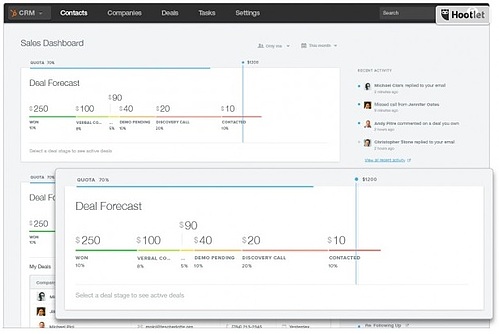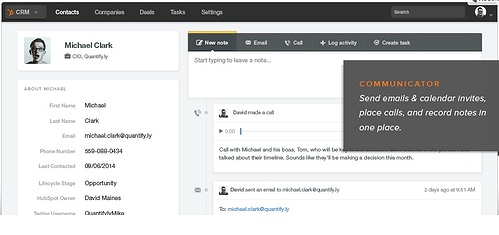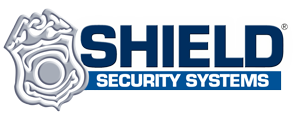Many businesses have adopted a CRM system to organize, manage and evaluate sales activities and interactions — all for the purpose of promoting sales growth. These systems become important tools for companies that want to create a better picture of their growth potential and the activities that drive it.
Still, the system is simply a tool — one that requires understanding and management by those who use it, as expressed in this quote:
“A system cannot understand itself. The transformation requires a view from outside.” — W. Edward Deming
In this post, we’ll present some of the features of today’s CRM systems and discuss the value of choosing and using an effective CRM to grow business.
CRM System: Choosing Your Solution
A successful CRM solution provides the right information, to the right person, at the right time. For marketing to have an impact in today’s highly competitive business environment, companies must plan and execute interactions that provide the customer with the best possible experience.
Organizations must understand the needs and preferences of individual customers, provide insight about them to decision makers and be able to leverage that insight in real-time.
Quality CRM systems meet these requirements through a single, integrated solution that incorporates scalable database management, powerful analytics, best-of-breed campaign management and interaction optimization. These systems allow for unified analytics, multi-step campaigns and meaningful customer conversations and management — all in real-time.
Important CRM Features
As you research to find the right CRM system for your business, there are some recommended features you should look for. The CRM tool you choose should offer:
- The means to develop insight into customers and take action in real-time based on that information.
- Tools to optimize target lists, enable campaign velocity and support for collaborative campaign development.
- Support for coordinated customer interactions across all channels and for the most sophisticated e-mail marketing campaigns.
- Web-based technology that deploys easily and scales to meet the largest enterprise.
- Marketing data which gives marketers deep insight into the customer and enables them to optimize every customer interaction.
A few of the most widely used CRM systems today include Salesforce, Microsoft Dynamics and Infusionsoft. One newer example, the Hubspot CRM, is an offering that targets small to medium businesses as an extension of their existing marketing software. Below is a look at the dashboard of the new Hubspot CRM system. Used in conjunction with Hubspot’s marketing software, the CRM is one option for businesses looking to get a better view of the sales environment.
source: hubspot

source: hubspot

The objective with a CRM is to obtain a full view of the customer at every stage of the customer life cycle and enable marketers to develop more effective interactions leading to higher response rates and increased sales. By improving the effectiveness of their interactions with customers, organizations are able to increase the profitability and intimacy of those relationships.
Focus on Customer Needs
When implementing a CRM solution, organizations today are moving from a “one-size-fits-all” customer model to an approach that promotes increased customer loyalty by focusing on the individual customer’s needs and preferences. Organizations require multi-channel capability so they are able to give customers highly relevant and consistent messages regardless of whether they interact via direct mail, a business website, telephone or another touchpoint.
Winning in today’s business environment requires constant focus on closing deals and generating revenue. To succeed in today’s competitive marketplace, you need to maximize the productivity and efficiency of your entire sales team.
A CRM system that focuses on customer needs will ultimately help to identify trends in your sales performance, forecast opportunities, measure product profitability and identify areas for improvement. The right CRM system will allow you to act on this type of information quickly and decisively to take advantage of opportunities signaled by customer behavior.
Evidence of CRM Effectiveness
Some meaningful statistics from the Harvard Business Review support the importance of a powerful CRM focus:
- A 5% decrease in customer defections can increase profits up to 25%.
- U.S. companies lose 1/2 of their customers every five years.
Sales leadership requires valuable business-level insight from sales data sources to provide a single, comprehensive view of enterprise-wide performance. The CRM system gives instant access to overall sales performance and individual performance metrics. This gives an organization the insight necessary to properly motivate individuals in the sales organization.
Final Takeaways
An effective sales force is critical to success in today’s competitive economy. On a strategic level, instant analysis of opportunities, closure patterns and the entire sales cycle through a CRM system has become essential to stay ahead of the curve. Using the CRM to grow business will allow sales professionals to take advantage of all opportunities, target the most likely prospects and to have the most accurate insight into the sales pipeline.
Effective use of a CRM tool will allow sales to manage, understand, and accelerate the purchasing decisions of prospects and customers. For more helpful information and a roadmap for growing your business, check out our e-book below.
This article is based on concepts included in training resources developed by Hahn Training, LLC.

